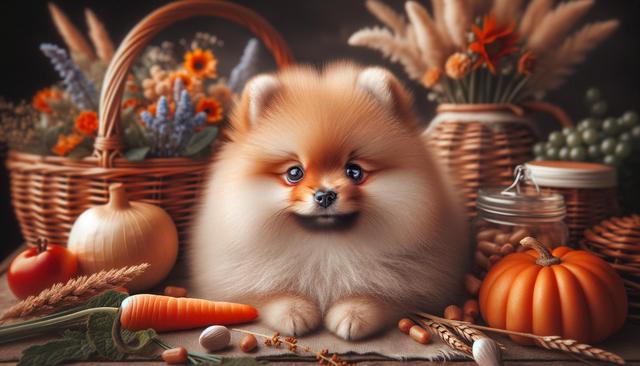Origins and Characteristics of the Pomeranian Breed
Pomeranian puppies belong to the toy group of dog breeds and are descendants of larger sled-pulling dogs from the Arctic regions. Over time, selective breeding reduced their size while retaining their strong personality and intelligence. Named after the Pomerania region in Northern Europe, these dogs have become beloved companions all over the world. Despite their small size, usually weighing between 3 to 7 pounds as adults, Pomeranians carry a bold and confident attitude that often surprises those unfamiliar with the breed.
They are well-known for their dense, double-layered coat, fox-like face, and erect ears. Their tails arch elegantly over their backs, adding to their charming appearance. Pomeranians come in a wide variety of colors including orange, cream, black, blue, and sable, offering prospective dog owners a range of choices to suit their preferences.
Temperament and Personality Traits
Pomeranian puppies are energetic, curious, and highly intelligent. These traits make them quick learners but also require consistent and gentle training. While they are affectionate with their families, they can be a bit wary of strangers, making early socialization essential. Their alert nature means they often act as effective watchdogs, barking at unfamiliar noises or visitors.
Some common personality traits include:
- Playfulness and high energy levels
- Loyalty to their owners
- A strong desire for attention and interaction
- An independent streak that can sometimes translate into stubbornness
Due to their intelligence, Pomeranians enjoy learning tricks and can excel in obedience training when positive reinforcement is used. However, their small size does not mean they lack assertiveness; many owners describe them as having a “big dog” personality in a small body.
Care and Grooming Needs
Caring for a Pomeranian puppy requires attention to grooming, diet, and exercise. Their thick coat demands regular brushing, ideally several times a week, to prevent matting and reduce shedding. Regular grooming sessions also help monitor for any skin issues or parasites. Bathing should be done every few weeks or as needed, using a gentle dog shampoo suitable for their skin type.
Key grooming tips include:
- Use a slicker brush to reach the undercoat
- Trim the hair around the paws and ears regularly
- Check ears and eyes weekly for cleanliness
- Brush their teeth several times per week to prevent dental issues
Pomeranians also need a balanced diet tailored to their size and energy levels. High-quality dry kibble formulated for small breeds is often a good starting point. Portion control is crucial to prevent obesity, which can lead to joint problems and other health issues.
Exercise and Mental Stimulation
Though small in size, Pomeranians are very active and enjoy physical and mental stimulation. Daily walks, interactive toys, and play sessions are important to keep them happy and healthy. Because of their intelligence, they thrive on puzzle toys and games that challenge their problem-solving skills.
Some activities that Pomeranians typically enjoy include:
- Short, energetic walks
- Indoor fetch or tug-of-war
- Agility training adapted for small dogs
- Learning new tricks or commands
It’s important to remember that Pomeranians can be prone to joint issues, such as patellar luxation, so high-impact exercises or jumping from heights should be avoided. Monitoring their activity and providing a safe environment ensures they can stay active without unnecessary risk.
Is a Pomeranian Puppy Right for You?
Before bringing home a Pomeranian puppy, it’s important to assess whether their needs and temperament align with your lifestyle. These dogs thrive in homes where they receive plenty of attention and interaction. They are well-suited for apartment living due to their small size but still need daily activity and mental stimulation to stay content.
Ideal owners for Pomeranian puppies include:
- Individuals or families who can dedicate time to grooming and training
- People living in smaller spaces, such as apartments, with access to outdoor areas for walks
- Those looking for a loyal, alert, and playful companion
- Pet owners who understand the importance of socialization and mental engagement
While they may not be the ideal choice for households with very young children due to their delicate size, Pomeranians can do well with older kids who understand how to handle small dogs gently. Their bold personality, combined with their affectionate nature, makes them a delightful addition to many homes when properly cared for and trained.




Leave a Reply